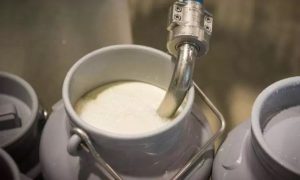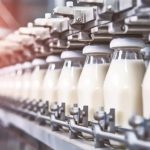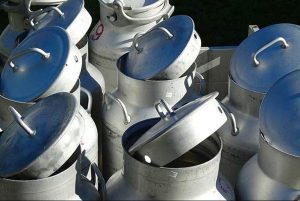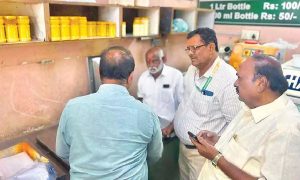
Influx of new breeders risks undercutting prices further as supply grows
Even with prices of Japanese wagyu beef at their lowest levels in years, dairy farmers are entering the wagyu breeding business to stay above water.
Wagyu calves from Japanese Black cattle averaged 1,790 yen ($12.38) per kilogram through July in fiscal 2024, according to the Tokyo-headquartered Agriculture & Livestock Industries Corp. This was down 29% from fiscal 2021, echoing the drop-off in wholesale wagyu prices.
Keiji Togawa, a wagyu rancher in the city of Miyazaki, cannot help noticing how fewer and fewer breeding specialists are showing up to sell calves at a nearby market.
“Looks like three more quit this month, too,” Togawa said in mid-August.
But despite the slump in market prices, the volume of Japanese Black wagyu calves traded came to roughly 367,000 head in fiscal 2023, up 1% on the year. This owes to dairy farmers making the jump to wagyu breeding.
“We want to increase our production of wagyu calves,” a dairy farmer in Hokkaido’s Tokachi said.
A dairy farmer can breed wagyu by artificially implanting fertilized wagyu embryos into Holstein cows. The calves are sold after being raised for about six to 10 months.
Even after lower market prices are factored in, one wagyu calf can still generate a profit of about 200,000 yen ($1,380) after subtracting the cost of feed and other expenses from the gross proceeds, according to the dairy farmer in Tokachi.
Japan’s dairy industry has been hammered by the slowdown in milk consumption, caused mainly by the country’s shrinking population. With next to no prospect of the market expanding, a number of dairy farmers have been forced to dispose of surplus milk.
In this harsh business environment, breeding wagyu calves has become a viable option for dairy farmers to bring in revenue.
Breeding wagyu is not necessarily cheap. Wagyu embryos cost 40,000 to 100,000 yen, and implantation has no guarantees of success.
But if a wagyu calf is born and grows to around 300 kg after six months or so, it could find a buyer for roughly 600,000 yen even in the current down market.
“Demand has remained strong” for fertilized Japanese Black wagyu embryos, said a representative at the Tokachi A.I. Center, a supplier in Hokkaido.
“Wagyu calf production is appealing,” said Yasuhiro Yoshida, a dairy farmer in Saitama prefecture.
But “you can’t do it unless you can afford to invest in a large-scale operation,” Yoshida said. “Between buying the embryos and the cost of feed, raising them is tough.”
Big dairy farms, able to leverage economies of scale, are thus the ones that can actually make money from wagyu calves. This puts already-strong players in a position to become even stronger.
If dairy farmers keep getting into the business, prices for wagyu calves will continue to fall.
The Tokachi dairy farmer sees the dilemma. “But we can’t give it up,” the farmer said.
You can now read the most important #news on #eDairyNews #Whatsapp channels!!!
🇮🇳 eDairy News ÍNDIA: https://whatsapp.com/channel/0029VaPidCcGpLHImBQk6x1F

















